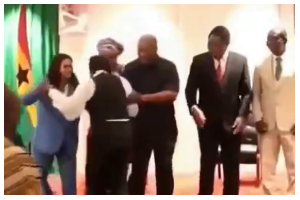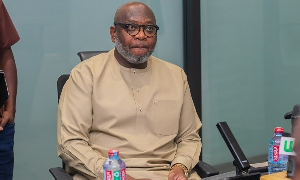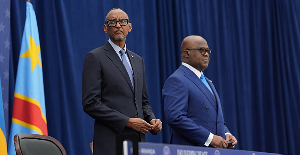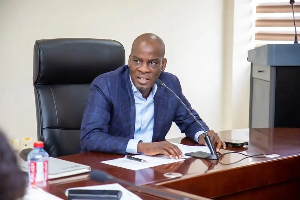The evidence provided by the petitioners in the ongoing election petition may not be as water-tight as Ghanaians were made to believe but the case is quite important as it goes to the heart of our young democracy. As many commentators have observed, the petition is likely to have a significant impact on our election discourse and the way elections are organised in the country. One of the issues emanating from ‘street discussions’ of the election petition relates to whether there can be a free and fair elections but fractured results. By fractured results, I mean one that is not a true reflection of what voters have actually preferred. Is it really possible in the face of the elections been declared transparent, free and fair by nearly all observers?
For many, discussion of free and fair elections raises a number of fundamental questions: When we say that an election has been free and fair, what exactly do we mean? That the election is free from what? And it is fair of what? In whose point of view can the election said to be free and fair? Everybody? The winner? The loser? Or who?
This piece of writing is aimed principally to stimulate discussion on the discourse of free and fair elections. It does not aim to offer any support or otherwise to any of the parties involved in the ongoing Election petition in the country. Of course I write this piece without any prejudice and without any contempt to the ongoing Election petition case.
Free and fair elections—free from what?
Many commentators are of the view that the term ‘free and fair elections’ is rather like the elephant – you know it when you see it but you cannot easily define it. The term has an intuitive appeal. Yet, the exact meanings of the term can be riddled with ambiguities due to its slippery nature. Generally, a ‘free’ electoral process is one where fundamental human rights and freedoms are respected, including: freedom of speech and expression by electors, parties, candidates and the media; freedom of association; that is, freedom to form organizations such as political parties and civil society groups; freedom of assembly, to hold political rallies and to campaign;
Other elements include freedom of access to and by electors to transmit and receive political and electoral information messages; freedom to register as an elector, a party or a candidate; freedom from violence, intimidation or coercion; freedom of access to the polls by electors, party agents and accredited observers; freedom to exercise the franchise in secret, and freedom to question, challenge and register complaints or objections without negative repercussions. By far, the election processes of Ghana score quite high with many of the elements that make election to be free.
A fair election—how do we know?
Fair—the other leg of the term, free and fair election is also one with ambiguity. But its usage is generally used to imply electoral process where the 'playing field' is reasonably level and accessible to all electors, parties and candidates. A fair electoral process includes but not limited to an independent, non-partisan electoral organization to administer the process; guaranteed rights and protection through the constitution and electoral legislation and regulations and equitable representation of electors provided through the legislation.
Other elements include clearly defined universal suffrage and secrecy of the vote; equitable and balanced reporting by the media; equitable access to financial and material resources for party and candidate campaigning; equitable opportunities for the electorate to receive political and voter information; accessible polling places; equitable treatment of electors, candidates and parties by elections officials, the government, the police, the military and the judiciary; an open and transparent ballot counting process, and election process not disrupted by violence, intimidations or coercion. These are all broad terms and elements subjected to contested and different interpretations. But generally, the Ghanaian electoral process scores quite high in many of elements—at least since the 4th republic.
Does free and fair election mean result cannot be ‘tampered, with’?
Can there be a free and fair elections but fractured results? I dare to say ‘yes’, this is highly possible. The succeeding points are highly hypothetical and do not in any way suggest that that was what happened in the 2012 General Elections. As shown above, the term free and fair election comprises a number of elements and principles deemed to be relevant to add to a credible election outcomes.
There are many processes and phases to an election—those related to before the voting day, on the day(s) of the voting and after the voting. In the lead up to the declaration of the results, eligible voters cast their votes, the votes are counted, the count is collated, the results are announced and formal declarations of results are made. Discussion of a free and fair election needs to be looked at it in all the processes rather than as a single event. It is therefore possible for one phase of the process to be entirely free and fair when another phase can be marred. A better appreciation of the term can therefore be made if it is in reference to a particular phase of the election—whether before voting, voting or after the voting before the results are declared.
The several processes involved with the election before the results are announced offer potential windows for tampering of results although the election itself might be seen as free and fair. Due to space constraints, I discuss two of these windows which can make a free and fair election not be a reflective of the results that actually transpired from the voting exercise. I will focus on the counting and recording at the polling station and the collation phases of the electoral processes.
Counting is the first task or process as soon as the stipulated voting period ends. Here in Ghana, we have nurtured a culture where this made in the most transparent form ever. Everyone has the right to observe such counting. Although the counting of election can be made in the open with the presence of several town folks, none of these are able to attest to what is written on the Declaration Sheet by the Presiding officer.
This is because (and as we saw in the previous election), the polling station is normally cordoned off and while the results may be counted in a very more transparent manner, it is only the Presiding officer and the polling agents (and sometimes other observers) who get the chance of seeing what has actually been written. Presiding officers, advertently or inadvertently, can therefore write a figure different from what has actually been counted. Of course, this is why the roles of Polling Agents are crucial. But what happens when the polling agents fail to perform that role?
Also, during the recording and collation phases, mistakes (which can be administrative, clerical or even a malpractice) can also be made that may affect the ‘true’ results. Whether the mistake is advertently or inadvertently or whether it is a violation of rules is not the focus of this paper. This article is interested in the possibility of the mistake occurring—and the fact that although the process itself could have been fair, different result can be obtained. Mistakes relating to transposition of figures, wrong calculation, deliberate altering of figures can all affect the summation and calculation of the results—which can affect the true results that transpired during the voting process.
In conclusion, the processes leading up to the election can be free and fair, the voting itself can be free and fair, the counting can further be free and fair but the results itself may suffer from fracture due to several windows where mistakes and malpractices can occur—which will ultimately affect the true results emanating from the polling stations. It is therefore incumbent upon all of us—individuals, presiding officers, political parties, the EC etc—to be vigilant and as honest as possible, to show the true will of the people.
By: Albert Arhin
Email: rainfallaaa@yahoo.com
Opinions of Friday, 31 May 2013
Columnist: Arhin, Albert A.
Can there be a free and fair elections but fractured results?
Entertainment













